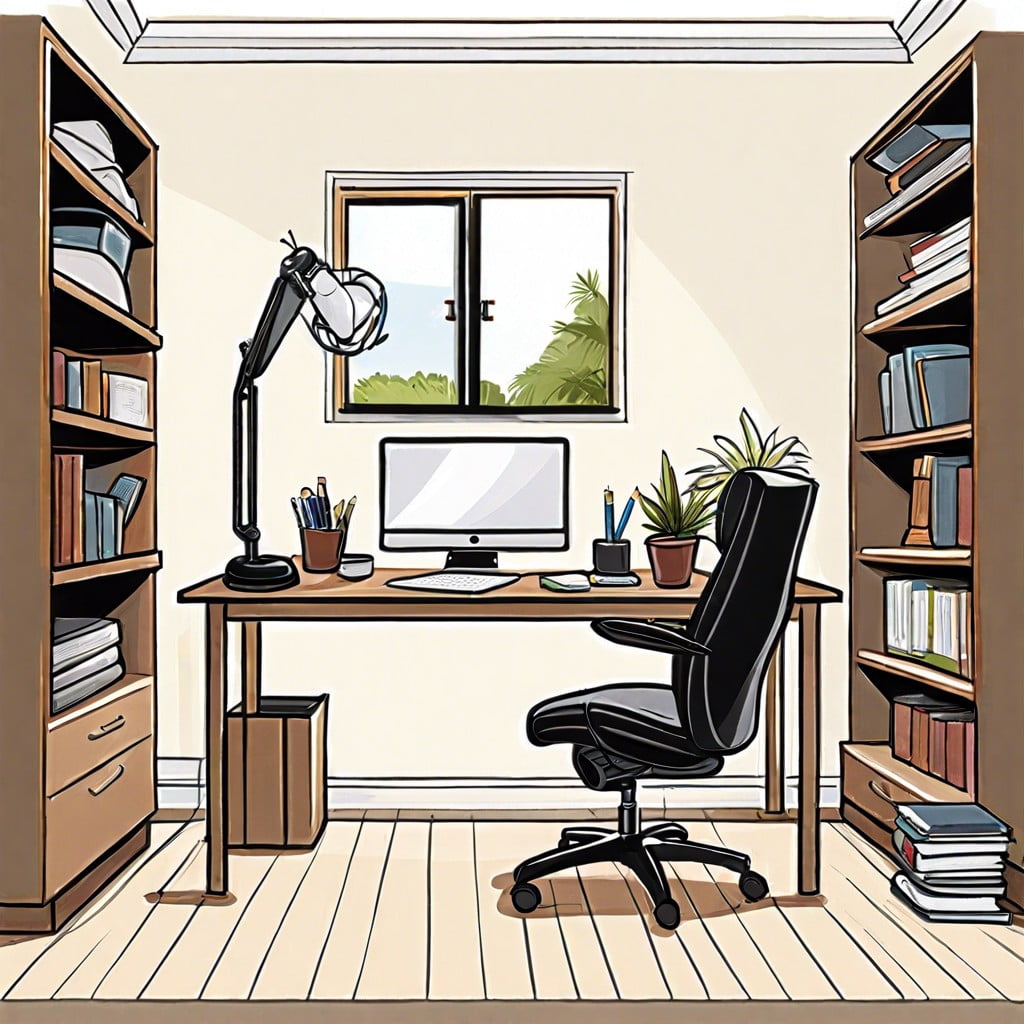A study space should be comfortable, organized, and free of distractions to boost focus and productivity.
Key takeaways:
- Choose the right study space: prioritize lighting, furniture, tidiness, and temperature.
- Remove distractions: turn off notifications, declutter, and communicate the need for quiet.
- Be prepared: gather materials, organize your desk, and ensure tech is ready.
- Set a schedule: break study time into chunks, allocate time for subjects, be consistent, and set achievable goals.
- Control noise: find the right balance, use white noise or instrumental music, and consider noise-canceling headphones.
Choose the Right Study Space

Consider lighting first. Natural light is fantastic for focus and mood. Position your desk near a window, but avoid glare on screens. Too much darkness equals sleepy time, not study time.
Furniture matters. A comfy chair with proper back support can make or break your study marathon. Ergonomics is not just a fancy word; it’s a lifesaver for your spine.
Keep it tidy. A clutter-free environment equals a clutter-free mind. Throw away those candy wrappers from last month.
Think temperature. Too hot, you’ll doze off. Too cold, you’ll be shivering through Shakespeare. Aim for the Goldilocks zone—just right.
Finally, personalize but don’t overdo it. A few motivational quotes, maybe a plant, or even a quirky coffee mug. Just don’t turn it into a carnival.
Boom! You now have a primo study space. Now, where did that motivation run off to?
Remove Distractions
Turn off notifications on your phone and laptop. Social media updates and random app alerts are productivity’s worst enemies. Trust us, no one ever needed to know about a cat video while solving algebra problems.
Keep your study area free from unnecessary gadgets and gizmos. That fancy electronic drum kit might be a great stress reliever, but it’s not helping you ace your geography test.
If you share your study space with others, communicate your need for quiet. A friendly “Do Not Disturb” sign can work wonders. Or, if you’re feeling creative, create one that says “Genius at Work. Enter at Your Own Risk.”
Organize your desk. A cluttered space can lead to a cluttered mind. Plus, who wants to spend twenty minutes looking for that misplaced pen?
Give your brain the calm it needs to focus. Save the Netflix binge for later, Sherlock.
Be Prepared
Organization is your best friend here. Gather all necessary materials before you start. Nothing kills the vibe like hunting for a pen mid-sentence.
Stock up on notebooks, pens, highlighters, textbooks—whatever you need for successful study sessions. A water bottle could help too; hydration fuels the brain.
Arrange your desk to keep essentials within arm’s reach. Create a system that suits your style. Maybe a pen holder, a stack of sticky notes, or even a quirky little cactus for inspiration.
Lastly, keep your tech in check. Make sure your laptop is charged and your study apps are ready to go. If you’re old-school, ensure your calculator has fresh batteries.
Happy studying—I mean, productive grinding!
Set a Schedule
Imagine diving into a never-ending sea of work without a life jacket. Setting a schedule is your trusty flotation device. Start by breaking down your study time into manageable chunks. Think of it as prepping for a snack buffet instead of a seven-course meal.
Allocate specific time slots for each subject. This keeps things fresh and your brain from feeling like a scrambled egg. Include short breaks to give your mind a rest. Nobody learns well on an empty mental fuel tank.
Be consistent. If you study at the same times every day, your brain gets into a routine, kind of like a well-trained puppy knowing when it’s treat time. Finally, set achievable goals for each study session. Hitting small milestones gives you the motivation to keep going. Now go conquer that study mountain, one hike at a time!
Control Noise
Finding the right balance of noise can make or break your study session. While some people can only focus in dead silence, others might need a bit of background noise.
White noise machines or apps can be a lifesaver, drowning out everything from barking dogs to rowdy roommates. If you prefer music, opt for instrumental tracks or ambient sounds to avoid singing along to your favorite hits.
Noise-canceling headphones are a solid investment if you’re constantly battling unwanted sounds. They create a quiet bubble, letting you dive deep into your work without interruption.
Experiment a little. Figure out what allows your brain to sing and dance with productivity. Remember, even the quietest whisper of a unicorn’s sneeze can be disruptive if it’s not your ideal noise level.